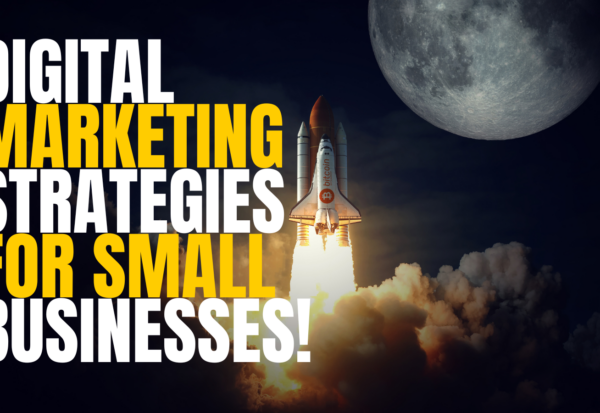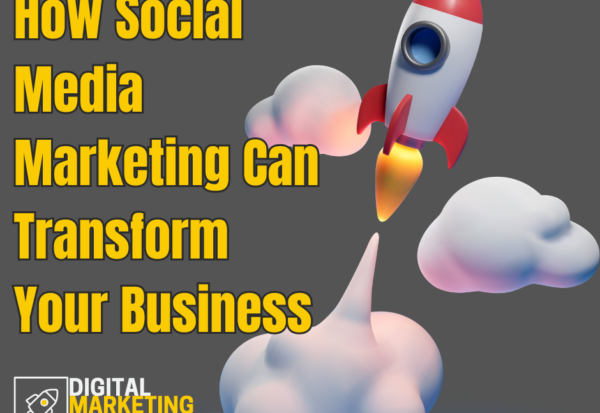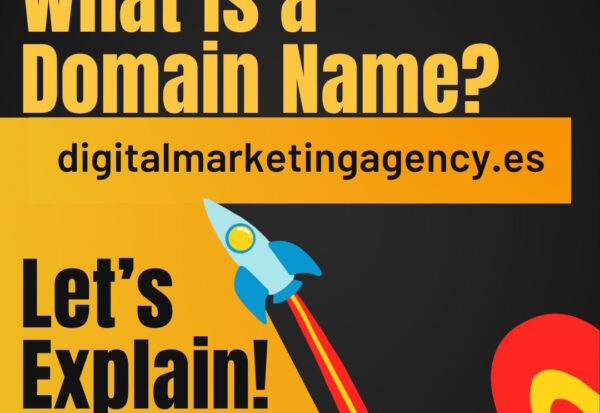THE BEST DIGITAL MARKETING AGENCY IN SPAIN
Search Engine Optimisation (SEO)
Local SEO (Google Maps Marketing)
Social Media Marketing (SMM)
Reputation Management Services
Paid Marketing Services (PMS)
Website Design And Development
We’re a Full-Service Digital Marketing Agency
![]() Welcome to Digital Marketing Agency, your premier full-service digital marketing partner based in the heart of the stunning Costa del Sol. The best Digital Marketing Agency Spain has to offer. – If you’re looking for the best Marketing Agency Marbella has to offer, then look no further. We offer a professional 5-STAR service, with proven results!
Welcome to Digital Marketing Agency, your premier full-service digital marketing partner based in the heart of the stunning Costa del Sol. The best Digital Marketing Agency Spain has to offer. – If you’re looking for the best Marketing Agency Marbella has to offer, then look no further. We offer a professional 5-STAR service, with proven results!

Read Our 5-STAR Client Testimonials

James Upjohn

Dempsey Legend

Charlotte Higson

Benefits of Using a Digital Marketing Agency!
Partnering with us is one of the smartest moves you can make for growing your business online.
You’ll gain access to a full team of experts in SEO, social media, paid ads, content creation, and website design, all working together to elevate your brand.
Instead of juggling your own marketing efforts, you can focus on running your business while the professionals handle the strategy, tools, and execution.
From improving your Google rankings and increasing traffic, to building brand awareness and converting leads into loyal customers, a digital agency delivers real, measurable results.
![]() Access to expert skills in SEO, social media, PPC, content, and web design
Access to expert skills in SEO, social media, PPC, content, and web design
![]() Save time and focus on running your business while the experts handle marketing
Save time and focus on running your business while the experts handle marketing
 Stay ahead with the latest tools, trends, and technologies
Stay ahead with the latest tools, trends, and technologies
 Get a tailored marketing strategy that fits your business goals and audience
Get a tailored marketing strategy that fits your business goals and audience
 Improve your search engine rankings and boost organic traffic
Improve your search engine rankings and boost organic traffic
 Increase brand awareness across multiple online channels
Increase brand awareness across multiple online channels
![]() Generate more leads and convert them into loyal customers
Generate more leads and convert them into loyal customers
 Track performance with clear reporting and data-driven insights
Track performance with clear reporting and data-driven insights
 Benefit from a full team without the cost of hiring in-house
Benefit from a full team without the cost of hiring in-house
![]() Scalable services that grow with your business needs
Scalable services that grow with your business needs
Digital Marketing Packages
Website Design & Hosting
- Website Creation
- Up To 10 Pages
- Branded Email Address
- 12 Months Hosting
- On Page SEO
Silver Marketing Package
- Website & Social Media Audit
- Competition Analysis
- Keyword Research
- SEO - On & Off Page
- Link Building Stratergy (50 inbound links)
- Google Analytics & Tracking
Gold Marketing Package
- Website & Social Media Audit
- Competition Analyu
- Keyword Research
- SEO - On & Off Page
- Link Building Stratergy (100 inbound links)
- Google Analytics & Tracking
- Management of 1 Social Profile (2 Posts Per Week)
Platinum Marketing Package
- Website & Social Media Audit
- Competition Analyu
- Keyword Research
- SEO - On & Off Page
- Link Building Stratergy (200 inbound links)
- Google Analytics & Tracking
- Management of 3 Social Profile (2 Posts Per Week)
- Google Buiness Profile Creation (Optimised & Managed)
**See Our Full Pricing Packages**
Our WINNING Marketing Stratergy
Keyword Research is the cornerstone of any successful SEO campaign and crucial for driving organic traffic to your website. Here’s how our meticulous approach to keyword research can help your business soar:
What is Keyword Research?
Keyword research involves identifying and analysing the search terms that people use when looking for information online. This process helps us uncover the queries that your target audience is searching for, determine the popularity of these queries, and assess their ranking difficulty. The insights gained from keyword research are essential for crafting content that resonates with your audience and improves your website’s visibility in search engine results pages (SERPs).
Why is Keyword Research Important?
Keyword research is vital because it provides valuable insights into what your target audience is searching for. By understanding these queries, we can tailor your content strategy to meet the needs and interests of potential customers. This not only boosts your search engine rankings but also drives more relevant traffic to your site, increasing the likelihood of conversions.
Elements of Keyword Research
![]() Relevance: Google prioritises content that meets the searcher’s intent. Our keyword research ensures that your content addresses the needs and questions of your audience, making it more likely to rank well.
Relevance: Google prioritises content that meets the searcher’s intent. Our keyword research ensures that your content addresses the needs and questions of your audience, making it more likely to rank well.
![]() Authority: We help you build authority by creating high-quality, informative content that earns backlinks and social signals, establishing your site as a trusted source.
Authority: We help you build authority by creating high-quality, informative content that earns backlinks and social signals, establishing your site as a trusted source.
![]() Volume: We target keywords with a significant monthly search volume to ensure that your content reaches a broad audience. Balancing high-volume keywords with long-tail keywords allows us to capture both broad and specific search queries.
Volume: We target keywords with a significant monthly search volume to ensure that your content reaches a broad audience. Balancing high-volume keywords with long-tail keywords allows us to capture both broad and specific search queries.
Our Keyword Research Process
Identifying Relevant Topics: We start by brainstorming key topics related to your business. These topics serve as the foundation for identifying specific keywords that your potential customers are likely to search for.
Generating Keyword Ideas: Using advanced keyword research tools, we generate a comprehensive list of potential keywords. This includes both head terms (short, generic keywords) and long-tail keywords (more specific phrases).
Analysing Search Intent: Understanding the intent behind each keyword is crucial. We analyse search intent to ensure that your content aligns with what users are actually looking for, whether it’s informational, navigational, or transactional queries.
Assessing Competition and Opportunities: We evaluate the competition for each keyword to identify opportunities where your site can realistically rank. This involves analysing the strengths and weaknesses of competing content.
Refining Keyword Strategy: We prioritise keywords based on their relevance, search volume, and competitive landscape. This refined list forms the basis of your SEO strategy, guiding content creation and optimisation efforts.
Benefits of Our Keyword Research Services
- Increased Visibility: By targeting the right keywords, we enhance your website’s visibility in search engine results, attracting more organic traffic.
- Improved Engagement: Tailoring content to what your audience is searching for leads to higher engagement rates and a better user experience.
- Higher Conversion Rates: Relevant traffic is more likely to convert. Our keyword strategy focuses on attracting visitors who are genuinely interested in your products or services.
- Competitive Advantage: Stay ahead of your competitors by targeting keywords that they might have overlooked, capturing untapped market segments.
Get Started with Digital Marketing Agency ES
Ready to elevate your SEO strategy with expert keyword research? Contact Digital Marketing Agency.ES today to schedule a consultation. Let us help you uncover the keywords that will drive traffic, boost engagement, and increase conversions for your business in Marbella and beyond.
![]() A key strategy for businesses looking to remain agile and competitive in this dynamic environment is understanding the strengths and weaknesses of their competitors. By delving into your competitors’ strategies, you can find ways to outperform them and better connect with your customers.
A key strategy for businesses looking to remain agile and competitive in this dynamic environment is understanding the strengths and weaknesses of their competitors. By delving into your competitors’ strategies, you can find ways to outperform them and better connect with your customers.
Conducting a digital competitive analysis is an essential part of this process. It provides insights into how your competitors utilise online strategies, helping you leverage your strengths and address your weaknesses. Whether you’re part of an established brand, a start-up, or a small business, competitive analysis in digital marketing is a tool you can’t afford to ignore. This guide provides a comprehensive overview of performing competitive analysis for digital marketing professionals.
Why is it Important for Marketers to Research the Competition?
A digital competitive analysis is crucial for business growth. It helps you uncover market opportunities, and identify gaps that could be due to underserved customer needs, new features, or overlooked audiences. By examining your competition, you refine your marketing strategy, understanding what works and what doesn’t in your industry.
Researching competitors also reveals customer complaints, preferences, and suggestions about similar offerings, guiding enhancements to your product or service. With the rapid evolution of digital marketing trends, staying updated on your competitors ensures you remain current with the most effective strategies.
How to Do Competitor Analysis in Digital Marketing
![]() To perform a competitive analysis in digital marketing, follow these steps:
To perform a competitive analysis in digital marketing, follow these steps:
Identify Your Competitors: Start with a Google search for your product or service category. List direct competitors (those offering similar products/services) and indirect competitors (those solving the same problem with different solutions).
Analyse Their Website and User Experience: Visit each competitor’s website. Note the overall design, user experience, call-to-actions, blog quality, mobile responsiveness, and unique features. Tools like SimilarWeb can provide insights into their website traffic and sources.
Examine Their Content Strategy: Assess the type of content they produce (videos, blogs, infographics, podcasts), how often they publish, and the engagement level. This helps identify what content resonates most with your target audience.
Inspect SEO and Keywords: Use tools like SEMrush or Ahrefs to find the keywords your competitors rank for. This shapes your SEO strategy and highlights potential keyword opportunities.
Assess Social Media Presence: Evaluate which platforms they’re active on, post frequency, content types, and audience engagement. Social listening tools like Brandwatch or Mention can be useful.
Review Their Advertising Tactics: Tools like SpyFu or AdEspresso can reveal your competitors’ online advertising strategies, including ad copy, visuals, and platform focus.
Evaluate Email Marketing: If possible, subscribe to your competitors’ email lists to understand their email marketing frequency, style, and promotions.
Feedback and Reviews: Analyse customer reviews on platforms like Yelp, Google Reviews, and industry-specific sites to understand what customers like or dislike about your competitors.
Identify Their Strengths and Weaknesses: Summarise what each competitor does well and where they fall short based on the collected data.
Draw Actionable Insights: Use the insights to refine your digital marketing strategy, adjusting content approaches, optimising websites, or focusing on specific advertising channels.
How do you conduct competitor analysis in digital marketing? A: To conduct competitor analysis in digital marketing, identify your competitors, and evaluate their websites, content strategies, SEO, social media presence, advertising tactics, and customer feedback. Use these insights to enhance your digital marketing strategy, capitalise on strengths, and address weaknesses.
Why is it important for marketers to research the competition? A: Researching the competition helps identify market opportunities, understand effective industry tactics, and spot gaps in the market. It refines your marketing strategy, ensuring you stay competitive and effective.
How do you analyse competitors in digital marketing? A: Analyse competitors by evaluating their websites, content strategies, SEO tactics, social media presence, advertising methods, and customer feedback. This information helps enhance your digital marketing strategy, optimise strengths, and rectify weaknesses.
What tools can help with competitive analysis? A: Tools like SimilarWeb, SEMrush, Ahrefs, SpyFu, Brandwatch, Mention, and AdEspresso can help analyse website traffic, SEO, PPC campaigns, social media presence, and customer feedback.
How can competitive analysis benefit my business? A: Competitive analysis provides insights into competitors’ strengths and weaknesses, helps identify market opportunities, improves your marketing strategies, and ensures your business stays ahead in the competitive landscape.
 A marketing strategy is essentially your game plan, a structured approach that outlines how you’re going to reach your business goals. It involves taking a close look at your current performance, identifying where the gaps are, and then developing a set of tactics to move you forward. In the world of digital marketing, this often means using online channels to increase your visibility, attract the right audience, and ultimately boost conversions.
A marketing strategy is essentially your game plan, a structured approach that outlines how you’re going to reach your business goals. It involves taking a close look at your current performance, identifying where the gaps are, and then developing a set of tactics to move you forward. In the world of digital marketing, this often means using online channels to increase your visibility, attract the right audience, and ultimately boost conversions.
Strategy vs. Tactics
It’s important to understand the distinction between strategy and tactics. Your strategy is the bigger picture, the long-term vision and the approach you’ll take to achieve your marketing goals. Tactics, on the other hand, are the specific actions you use to bring that strategy to life. If strategy is your roadmap, then tactics are the steps along the way. Both are crucial, but without a clear strategy, even the best tactics can fall flat.
What Makes Up a Digital Marketing Strategy?
Every strong digital marketing strategy begins with clear goals and objectives. Your goals represent the broader achievements you’re working towards, such as increasing brand awareness or improving customer retention. Objectives are more specific and measurable – for instance, growing your Instagram following by 20% over the next three months or generating 50 qualified leads per month through paid ads.
Understanding your audience is equally important. You need to know who you’re speaking to, their demographics, interests, behaviours, and challenges. This insight allows you to create content that resonates with them and choose the most effective channels for engagement. A content strategy then brings this to life, helping you create valuable, relevant material that educates, entertains, or solves a problem. Whether it’s blog posts, videos, infographics, or email campaigns, your content should be optimised for both search engines and your users.
User experience, or UX, is another critical element. Your website should not only look good but function smoothly too. It needs to be easy to navigate, fast to load, mobile-friendly, and accessible – because a clunky or confusing site can quickly turn potential customers away. Alongside this, data analytics plays a huge role in shaping your decisions. Tracking performance helps you understand what’s working, what’s not, and where to refine your strategy for better results.
How to Build Your Digital Marketing Strategy
 The first step in building your digital marketing strategy is to create detailed buyer personas. These should be based on real data and give you a clear picture of who your audience is, their needs, goals, habits, and priorities. With this foundation, you can set clear and measurable goals that align with your business objectives.
The first step in building your digital marketing strategy is to create detailed buyer personas. These should be based on real data and give you a clear picture of who your audience is, their needs, goals, habits, and priorities. With this foundation, you can set clear and measurable goals that align with your business objectives.
Next, it’s time to assess your existing digital presence. Look at your owned media, like your website, blog, and social profiles – and identify what’s performing well and what could be improved. From there, you can develop a plan to create new content that fills any gaps and supports your wider goals. Don’t forget to review your earned media too, such as press mentions or user-generated content, to see which channels are giving you the most value.
Paid media should also be carefully reviewed. Which ads are driving traffic or conversions? Which platforms are worth the investment? By optimising or cutting underperforming campaigns, you can make better use of your budget. Once all these pieces are in place, it’s time to bring everything together into a cohesive campaign. Every part, from content creation to email marketing and Paid Marketing, should work in harmony to achieve your goals.
Examples of Digital Marketing Campaigns
There are many ways to bring a digital strategy to life. Content marketing remains one of the most effective, helping you attract and engage your audience through blog posts, guides, videos, and more. Paid advertising, such as Google Ads or sponsored social media posts, can deliver fast results by putting your brand in front of new people. SEO is another long-term strategy that helps your content and website rank higher in search engine results, bringing in organic traffic over time.
Social media marketing is fantastic for building relationships with your audience and growing your brand presence, while email marketing is a reliable way to nurture leads and stay in touch with existing customers. Influencer marketing can also give you access to new communities and lend credibility to your brand. And with the rise of video content, using platforms like YouTube or short-form videos on Instagram and TikTok can help you get your message across in a more dynamic way.
 On-page SEO, also known as optimised website design, plays a vital role in how both search engines and users interact with your website. It’s all about making your site as accessible, informative, and easy to navigate as possible. While off-page SEO focuses on external signals like backlinks, and technical SEO covers things like site speed and performance, on-page SEO is completely within your control. That’s what makes it such a powerful part of your digital marketing strategy. When done properly, it can improve your rankings, increase visibility, drive more targeted traffic to your site, and boost conversions.
On-page SEO, also known as optimised website design, plays a vital role in how both search engines and users interact with your website. It’s all about making your site as accessible, informative, and easy to navigate as possible. While off-page SEO focuses on external signals like backlinks, and technical SEO covers things like site speed and performance, on-page SEO is completely within your control. That’s what makes it such a powerful part of your digital marketing strategy. When done properly, it can improve your rankings, increase visibility, drive more targeted traffic to your site, and boost conversions.
The Key Elements of On-Page SEO
A successful on-page SEO strategy starts with thorough keyword research. This means identifying the words and phrases your target audience is actually searching for. Tools like Ahrefs, SE Ranking, and UberSuggest are great for helping you uncover those relevant search terms. Once you’ve found them, it’s important to use them naturally within your content. Think about where your users are in the buyer journey, whether they’re just browsing, actively comparing options, or ready to make a decision, and tailor your keywords accordingly.
Your page titles are also incredibly important. These should clearly explain what each page is about, ideally include your primary keyword, and stay under 60 characters so they display properly in search results. Each one should be unique and written in a way that encourages people to click.
Headers, like H1s and H2s, help structure your content and guide both users and search engines through your page. They should include your key terms where relevant but should still read naturally. Meta descriptions, while not a direct ranking factor, are another crucial piece of the puzzle. A well-written meta description gives a short summary of your page, encourages click-throughs, and reinforces the keyword focus. Aim to keep them under 160 characters and make them clear, concise, and compelling.
Images also play a part in on-page optimisation. To maximise their impact, make sure they’re properly compressed to speed up load times, use descriptive filenames, and include keyword-rich alt text to improve accessibility and SEO value. Your website’s internal linking structure is equally important. Linking to other pages within your site helps users discover more of your content and assists search engines in crawling and indexing your pages effectively. Just make sure the anchor text is relevant and helpful.
Your URL structure should be simple and meaningful. Avoid long strings of numbers or irrelevant characters – instead, keep it short, readable, and keyword-focused. Quality content is at the heart of every effective SEO strategy. Each page should provide valuable, well-written information that genuinely meets user intent. Ideally, aim for at least 500 words per page and focus on keeping the content easy to read, engaging, and well-organised.
In today’s mobile-first world, your website must be mobile-friendly. A responsive design that adjusts across devices, fast load times, and easy touch navigation are essential for both user experience and SEO performance. Speaking of speed, how quickly your site loads is a ranking factor in its own right. Use tools like Google PageSpeed Insights to assess your performance and look for opportunities to compress images, cache resources, and reduce server response times.
Managing On-Page SEO at Scale
 If you’re managing a large site, it’s important to keep on top of your SEO across all pages. Start by crawling your site using tools like Screaming Frog or HubSpot’s Page Performance tool. This gives you a clear overview of your existing content and helps you spot any gaps or areas for improvement. Conducting a full SEO audit will help you evaluate your current structure, update outdated URLs, titles, and meta descriptions, and ensure everything is aligned with best practices.
If you’re managing a large site, it’s important to keep on top of your SEO across all pages. Start by crawling your site using tools like Screaming Frog or HubSpot’s Page Performance tool. This gives you a clear overview of your existing content and helps you spot any gaps or areas for improvement. Conducting a full SEO audit will help you evaluate your current structure, update outdated URLs, titles, and meta descriptions, and ensure everything is aligned with best practices.
Tracking keywords for each page is essential so you can measure performance and adjust your strategy as needed. It’s also worth defining what value each page offers and who it’s aimed at. Make sure each page speaks to the right audience and answers the questions they’re likely to have. From there, you can plan and create new titles, refresh meta descriptions, and review the content itself to ensure it’s still relevant, accurate, and high quality. Adding visual elements, like images and graphics with properly optimised alt text, can help break up the text and improve user engagement.
Regularly reviewing your internal and external links is just as important. Make sure they’re all functional and relevant, and add new ones where appropriate to improve the user journey. Finally, always optimise your pages with conversions in mind. Include clear calls to action that guide users towards making an enquiry, booking a service, or whatever your goal may be.
 Off-page SEO refers to all the activity that happens away from your website but still has an impact on where you rank in search engine results. It’s about building your site’s reputation and authority across the web. Think of it as everything you do to show search engines like Google that your site is trustworthy, valuable, and worth ranking. From securing backlinks to creating content others want to share, off-page SEO plays a crucial role in boosting your visibility and driving organic traffic.
Off-page SEO refers to all the activity that happens away from your website but still has an impact on where you rank in search engine results. It’s about building your site’s reputation and authority across the web. Think of it as everything you do to show search engines like Google that your site is trustworthy, valuable, and worth ranking. From securing backlinks to creating content others want to share, off-page SEO plays a crucial role in boosting your visibility and driving organic traffic.
Why Link Building Matters
One of the most important elements of off-page SEO is link building. This is the process of getting other websites to link back to yours, acting almost like a vote of confidence. These links, or backlinks, signal to search engines that your content is worth referencing. The more high-quality links you have pointing to your site, the more credible and authoritative your website appears in the eyes of Google. This can have a direct effect on your search engine rankings and increase the amount of traffic you receive.
How to Build Strong Backlinks
A good place to start with link building is by creating genuinely valuable content. When you produce high-quality, well-researched, and engaging material, other websites are far more likely to reference it. The aim is to become a reliable source of information in your niche, so that backlinks come naturally. Quality always matters more than quantity.
It’s also useful to understand what’s working for your competitors. By conducting competitor analysis with tools like Ahrefs or SEMrush, you can see where they’re earning backlinks and identify opportunities for your own outreach. If certain sites are linking to them, there’s a good chance they might be interested in your content too, especially if you offer something unique or more current.
Guest posting is another effective strategy. By writing valuable articles for well-established sites in your industry, you not only reach a wider audience but also earn high-authority backlinks in the process. Just make sure your content genuinely offers something of value to the host site’s readers, quality and relevance are key.
You can also take advantage of broken link building. This involves finding outdated or broken links on relevant websites and suggesting your content as a suitable replacement. Tools like Check My Links can help you identify these broken links, and with a polite message to the site owner, you can propose a quick fix that benefits both of you.
![]() Another approach is to build genuine relationships with others in your industry. This might include bloggers, influencers, or site owners whose content aligns with yours. By engaging with their work, sharing their posts, and building rapport over time, you can create opportunities for organic backlinks through collaborations and mutual support.
Another approach is to build genuine relationships with others in your industry. This might include bloggers, influencers, or site owners whose content aligns with yours. By engaging with their work, sharing their posts, and building rapport over time, you can create opportunities for organic backlinks through collaborations and mutual support.
Social media can also play a big role in your off-page SEO. Sharing your content across different platforms helps increase visibility, attract shares, and drive traffic, all of which can lead to more natural backlinks. The more people who see your content, the greater the chance it will be referenced elsewhere.
Keeping an eye on your backlink profile is just as important as building it. Use tools like Google Search Console or Ahrefs to monitor where your backlinks are coming from. This allows you to assess their quality and relevance, and if needed, disavow any spammy or low-quality links that could harm your rankings.
Outreach That Actually Works
Outreach is a major part of link building, and doing it well makes all the difference. The key is to be personal and relevant. Rather than sending generic emails, tailor your message to the individual you’re contacting. Show them how your content could genuinely help their audience or add something valuable to their site.
Don’t be discouraged if you don’t get a reply straight away. People are busy and inboxes fill up quickly. A polite follow-up email can go a long way in getting your message noticed. Just remember to stay respectful and professional.
It also helps to clearly communicate the value of your content. If your article fills a gap in their existing content, provides a fresh perspective, or shares new data or insights, make that known. People are far more likely to respond positively when they understand how your content benefits them.
Trust is everything when it comes to outreach. Be transparent about your intentions and avoid anything that might come across as spammy or overly pushy. A genuine, professional tone helps build credibility and makes it more likely that someone will take your request seriously.
And finally, the way you write your outreach emails matters. Keep them clear, polite, and to the point. Avoid jargon and overly salesy language. Focus on building a connection, not just securing a link.
 A brand is far more than just a company name or a smart-looking logo. It’s the feeling people get when they come across your business, the way you look, sound, and behave. Your brand identity includes your visual style (colours, fonts, logo), your tone of voice, and the values your business stands for. Done well, branding helps you stand out from the competition and creates a lasting impression in the minds of your audience.
A brand is far more than just a company name or a smart-looking logo. It’s the feeling people get when they come across your business, the way you look, sound, and behave. Your brand identity includes your visual style (colours, fonts, logo), your tone of voice, and the values your business stands for. Done well, branding helps you stand out from the competition and creates a lasting impression in the minds of your audience.
Why Does Branding Matter?
In a world full of options, branding is what makes someone choose you over someone else. It gives your business a personality, helping people recognise and remember you. More importantly, consistent branding builds trust and credibility over time. Even if you offer the best product or service in your industry, it won’t reach its full potential without a brand people connect with and believe in.
The Role of Social Media in Branding
Social media has become one of the most powerful tools for brand building. It’s where people go to discover, engage, and form opinions, so it’s the perfect place to shape how your brand is perceived. Through posts, videos, stories, and day-to-day interaction, you can show your business’s personality, values, and expertise in a natural, human way. Platforms like Instagram, TikTok, and Facebook are especially effective for reaching younger audiences like Millennials and Gen Z, who expect brands to be both visible and authentic online.
How to Build a Brand Using Social Media
 It all starts with clarity. You need to be clear about why your business exists, what it’s trying to achieve, and how it plans to get there. Knowing your purpose, mission, vision and values sets the foundation for everything that follows. From there, you can build a brand identity that reflects who you are, not just in visuals like logos and colours, but also in the way you communicate. Whether your tone is casual and friendly or polished and professional, it should feel like a true reflection of your business.
It all starts with clarity. You need to be clear about why your business exists, what it’s trying to achieve, and how it plans to get there. Knowing your purpose, mission, vision and values sets the foundation for everything that follows. From there, you can build a brand identity that reflects who you are, not just in visuals like logos and colours, but also in the way you communicate. Whether your tone is casual and friendly or polished and professional, it should feel like a true reflection of your business.
Once you’ve defined your identity, it’s important to create a clear strategy for managing and sharing your brand. A simple style guide outlining your colours, fonts, tone of voice, and visual style will help you stay consistent across all platforms. Branded templates for social posts, presentations, and emails make day-to-day marketing quicker, easier, and more effective.
Growing a Strong Presence on Social Media
Consistency is key. Whether someone sees your content on Facebook, Instagram or LinkedIn, they should immediately recognise it as yours. Use the same visual elements, like colours and fonts, and keep your voice clear. This helps build familiarity, and over time, trust.
Storytelling is another powerful way to connect. People love to hear how businesses began, who’s behind them, and how they make a difference. Share the “why” behind your products or services, introduce your team, and give a glimpse into your daily life. These personal touches go a long way in building real connections.
It also helps to develop a distinct look and feel that sets you apart from competitors. If most brands in your industry lean towards neutral, minimalist designs, why not go bold and vibrant? The same applies to your tone, it’s fine to be professional, but don’t be afraid to let some personality shine through.
Social Media Strategies That Build Brands
Focus on sharing content that adds value. Tips, how-to guides, behind-the-scenes videos, and even customer stories can all help position your brand as helpful and relatable. Encourage your happy customers to share their own experiences, and re-share their content when you can. Not only does this boost engagement, it also shows that you value your community.
Short-form video is incredibly effective, whether you’re showing off your products, introducing your team, or hopping on a trend. These quick, engaging clips are a brilliant way to stay relevant and build awareness. Remember to regularly review your brand and freshen things up when needed. Even something as simple as sharing the rebranding journey with your audience can strengthen your connection with them.
Don’t be afraid to ask your followers questions or run polls, it’s a great way to get to know your audience better and involve them in your brand story. And if a piece of content performs well, repurpose it! A blog post can become a video, a podcast episode, or a carousel on Instagram.
Every piece of content should reflect your brand. That means using your colours, fonts, logo, and tone of voice consistently, whether you’re sharing a quick tweet or a detailed blog post. Collaborating with other brands or creators can also help you reach new audiences and add fresh energy to your feed.
Above all, focus on quality. It’s better to post less often but with genuine value, than to post frequently with content that doesn’t quite hit the mark.
Digital Marketing Agency
#1 Digital Marketing Agency in Spain
![]() Digital Marketing Agency stands at the forefront of the digital marketing revolution, providing comprehensive services tailored to meet the unique needs of each client. Located in the vibrant Costa del Sol, our agency combines local expertise with global insights to deliver unparalleled results in SEO, social media marketing, and paid advertising.
Digital Marketing Agency stands at the forefront of the digital marketing revolution, providing comprehensive services tailored to meet the unique needs of each client. Located in the vibrant Costa del Sol, our agency combines local expertise with global insights to deliver unparalleled results in SEO, social media marketing, and paid advertising.
We pride ourselves on our ability to craft personalised strategies that not only increase visibility but also drive meaningful engagement and conversion rates, fostering long-term growth for businesses of all sizes.
Our team of dedicated professionals is deeply committed to pushing the boundaries of digital marketing. We utilise the latest tools and technologies to ensure your brand stands out in a crowded marketplace.
Whether you’re looking to dominate local search results with targeted SEO, create impactful social media campaigns, or leverage the power of Google and social media advertising, Digital Marketing Agency is your trusted partner.
![]() Let us help you navigate the complex digital landscape and turn your online potential into real-world success. – If you’re looking for the best digital marketing agency Spain has to offer, look no further.
Let us help you navigate the complex digital landscape and turn your online potential into real-world success. – If you’re looking for the best digital marketing agency Spain has to offer, look no further.
Frequently Asked Questions
See Our Full List Of Frequently Asked Questions
Digital Marketing Agency Spain
Got questions about how digital marketing can help your business grow? Our FAQs section is the perfect place to start. Whether you’re curious about our services, pricing, timelines, or what to expect when working with us, we’ve answered the most common questions to give you quick, clear insights. It’s a great way to learn more before getting started and to understand how we can support your business online. Take a moment to browse our FAQs, your answers might be just a click away!

What types of digital marketing services do you offer?
 At our agency, we provide a comprehensive suite of digital marketing services designed to cover all aspects of your online presence.
At our agency, we provide a comprehensive suite of digital marketing services designed to cover all aspects of your online presence.
This includes Search Engine Optimisation (SEO) to enhance your visibility on search engines, Social Media Marketing (SMM) to engage and grow your audience on platforms like Facebook, Instagram, and Twitter, and Pay-Per-Click (PPC) advertising for immediate traffic generation.
We also offer Email Marketing for direct communication with your customers, Content Marketing to enrich your site with valuable and relevant information, and Web Design to ensure your website is attractive, user-friendly, and optimised for conversions. Each service is crafted to work synergistically, ensuring a cohesive and effective online strategy.
How do you tailor your strategies to different industries or businesses?
 Our approach to digital marketing is highly customized based on the specific needs and goals of each client. We start by conducting an in-depth analysis of your business, industry, and competitors. This allows us to identify unique opportunities and challenges specific to your market. From there, we craft tailored strategies that leverage the most effective channels and tactics for your sector.
Our approach to digital marketing is highly customized based on the specific needs and goals of each client. We start by conducting an in-depth analysis of your business, industry, and competitors. This allows us to identify unique opportunities and challenges specific to your market. From there, we craft tailored strategies that leverage the most effective channels and tactics for your sector.
Whether you’re in e-commerce, healthcare, technology, or any other industry, we apply our specialized knowledge to create marketing plans that are not only relevant but also impactful in driving your business forward.
What is your process for measuring and reporting results?
 We believe transparency is key to a successful partnership. Our agency uses advanced analytics tools to track the progress of your campaigns in real-time. We measure key performance indicators (KPIs) such as traffic, conversion rates, engagement levels, and ROI to gauge the effectiveness of our efforts.
We believe transparency is key to a successful partnership. Our agency uses advanced analytics tools to track the progress of your campaigns in real-time. We measure key performance indicators (KPIs) such as traffic, conversion rates, engagement levels, and ROI to gauge the effectiveness of our efforts.
Monthly reports are provided to keep you informed of your campaign’s performance, including detailed analyses and actionable insights. Additionally, we hold regular review meetings to discuss these results, refine strategies, and ensure we’re aligned with your business objectives.
Can you provide case studies or examples of previous work with similar businesses?
 We are proud of our track record and we’re happy to share case studies that demonstrate our capabilities and results. These case studies cover a variety of industries and show how we’ve successfully solved unique marketing challenges faced by our clients.
We are proud of our track record and we’re happy to share case studies that demonstrate our capabilities and results. These case studies cover a variety of industries and show how we’ve successfully solved unique marketing challenges faced by our clients.
From increasing brand awareness to boosting online sales, these examples provide a clear picture of what we can achieve. Each case study includes a detailed description of the strategies employed, the execution process, and the results achieved, providing you with a comprehensive understanding of our approach and effectiveness.
What makes your agency different from other digital marketing agencies?
 What sets us apart from other digital marketing agencies is our commitment to personalized service and results-driven strategies. We are not just a service provider; we act as your strategic partner, deeply invested in your success.
What sets us apart from other digital marketing agencies is our commitment to personalized service and results-driven strategies. We are not just a service provider; we act as your strategic partner, deeply invested in your success.
Our team is composed of certified professionals who specialise in various aspects of digital marketing and are constantly updating their skills with the latest industry trends and technologies.
Moreover, we pride ourselves on our ethical approach to marketing, prioritising sustainable and honest methods that build real value for your business. Our client-centric focus and dedication to excellence ensure that we deliver superior results, making us a leader in the industry.
How do you measure success for digital marketing campaigns?
 We measure success through a combination of key performance indicators (KPIs) such as website traffic, conversion rates, lead generation, engagement metrics, and ROI. The specific metrics we track will depend on your business goals and objectives.
We measure success through a combination of key performance indicators (KPIs) such as website traffic, conversion rates, lead generation, engagement metrics, and ROI. The specific metrics we track will depend on your business goals and objectives.
How will you improve our website’s search engine rankings?
 We will conduct a comprehensive SEO audit to identify areas for improvement, including on-page elements, technical SEO, and backlink profiles. We then develop a customised strategy that includes keyword optimisation, content creation, link building, and ongoing performance monitoring to steadily improve your rankings
We will conduct a comprehensive SEO audit to identify areas for improvement, including on-page elements, technical SEO, and backlink profiles. We then develop a customised strategy that includes keyword optimisation, content creation, link building, and ongoing performance monitoring to steadily improve your rankings
Can you show us examples of websites you have helped to rank higher?
 Yes, we can provide examples of client websites that have seen significant improvements in their search engine rankings. These examples include a detailed overview of the strategies we used and the measurable outcomes achieved.
Yes, we can provide examples of client websites that have seen significant improvements in their search engine rankings. These examples include a detailed overview of the strategies we used and the measurable outcomes achieved.
What is your process for conducting keyword research?
 Our keyword research process involves using advanced tools like Ahrefs, SE Ranking, and UberSuggest to identify relevant keywords with high search volume and low competition. We also analyze competitor keywords and consider the user intent behind searches to ensure we target the most effective keywords for your business.
Our keyword research process involves using advanced tools like Ahrefs, SE Ranking, and UberSuggest to identify relevant keywords with high search volume and low competition. We also analyze competitor keywords and consider the user intent behind searches to ensure we target the most effective keywords for your business.
What is your approach to content creation and strategy?
 We start with a thorough understanding of your target audience and business goals. Our team then creates a content plan that includes a mix of blog posts, videos, infographics, and other formats tailored to your audience. We ensure all content is optimised for SEO and aligned with your brand voice.
We start with a thorough understanding of your target audience and business goals. Our team then creates a content plan that includes a mix of blog posts, videos, infographics, and other formats tailored to your audience. We ensure all content is optimised for SEO and aligned with your brand voice.
Do you offer website design and development services?
 Yes, we offer comprehensive website design and development services. Our team creates visually appealing, user-friendly, and SEO-optimized websites that drive conversions and provide a great user experience.
Yes, we offer comprehensive website design and development services. Our team creates visually appealing, user-friendly, and SEO-optimized websites that drive conversions and provide a great user experience.
How do you ensure websites are optimised for both SEO and user experience?
 We follow best practices for both SEO and UX, including responsive design, fast loading times, clear navigation, and optimised content. We also conduct thorough testing to ensure the website performs well across all devices and browsers.
We follow best practices for both SEO and UX, including responsive design, fast loading times, clear navigation, and optimised content. We also conduct thorough testing to ensure the website performs well across all devices and browsers.
Can you show us examples of websites you have designed and developed?
 Absolutely. We have a portfolio of websites we have designed and developed for various clients. These examples demonstrate our ability to create custom, high-performing websites tailored to different industries and business needs
Absolutely. We have a portfolio of websites we have designed and developed for various clients. These examples demonstrate our ability to create custom, high-performing websites tailored to different industries and business needs
Where do you offer digital marketing services?
 Digital Marketing Agency ES provides a full spectrum of digital marketing services across the entire Costa del Sol, serving clients in the following areas:
Digital Marketing Agency ES provides a full spectrum of digital marketing services across the entire Costa del Sol, serving clients in the following areas:
- Málaga: Centro, El Palo, Pedregalejo, Churriana, Campanillas
- Torremolinos: La Carihuela, Montemar, Playamar, El Bajondillo
- Benalmádena: Arroyo de la Miel, Benalmádena Costa, Benalmádena Pueblo
- Fuengirola: Los Boliches, Carvajal, Torreblanca, Fuengirola Centro
- Mijas: Mijas Pueblo, La Cala de Mijas, Las Lagunas, Calahonda
- Marbella: Marbella Centro, Puerto Banús, San Pedro de Alcántara, Nueva Andalucía, Elviria
- Estepona: Estepona Town, El Paraíso, Selwo, Cancelada
- Nerja: Capistrano, Burriana Beach, Nerja Town
- Rincón de la Victoria: La Cala del Moral, Torre de Benagalbón, Rincón de la Victoria Centro
- Vélez-Málaga: Torre del Mar, Caleta de Vélez, Vélez-Málaga Town
Our team at Digital Marketing Agency ES is committed to delivering exceptional digital marketing solutions tailored to each client’s unique needs. We specialize in integrating multiple channels and tactics, including SEO, PPC, content marketing, social media management, and email marketing, to create cohesive and effective marketing strategies. Our holistic approach ensures that every aspect of your digital presence is optimized for success, driving growth and enhancing your brand’s online visibility.
Contact us today to learn how our expertise in digital marketing can help you achieve your business objectives and stand out in a competitive market.






